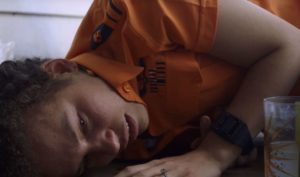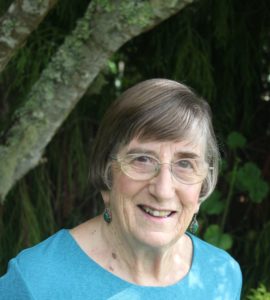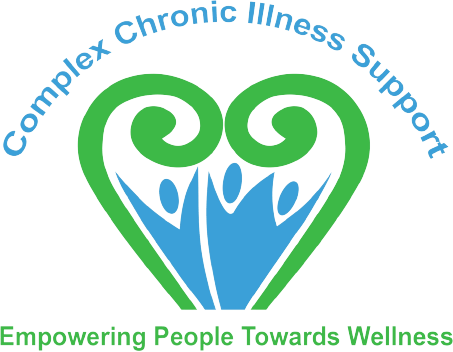 Original Article can be found here: https://www.rnz.co.nz/news/the-wireless/375278/the-children-left-bed-bound-by-fatigue
Original Article can be found here: https://www.rnz.co.nz/news/the-wireless/375278/the-children-left-bed-bound-by-fatigue
What do you do with a child who falls ill and is never again well enough to return to school? Felicity Monk reports on the illness striking down thousands of New Zealand children and teenagers.
Seven years ago, Teresa’s* three children, then aged 9, 12 and 13, became sick over the school holidays with glandular fever. But instead of recovering from the viral illness, they all got worse. Much worse. Their energy levels plummeted, they developed sensitivity to light, sound and motion; and their muscles and joints throbbed in pain. Simply sitting and standing up was exhausting.
Teresa took her oldest child, who was the most unwell, to a paediatrician, who ran tests and ruled out a number of illnesses, finally settling on a diagnosis of myalgic encephalomyelitis/chronic fatigue syndrome (ME/CFS). Within 18 months, her two other children were also diagnosed with ME/CFS. For the following three years, all three were too unwell to attend school.
ME/CFS is a brutal, debilitating, and often misunderstood disease. There is currently no laboratory test for it and diagnosis is instead reached through a process of elimination, which is often time-consuming and expensive. There are also no known cures. A complex and multi-faceted condition, it features a bewildering set of symptoms, including profound fatigue, cognitive dysfunction, sleep disturbance and pain – all made worse by exertion of any sort. At the severe end, sufferers become bed-bound and need 24-hour care.
In New Zealand, it’s thought between 20,000 and 25,000 people have ME/CFS. Children aren’t spared: the global prevalence among children and teenagers is estimated to be between one and five in 1000, meaning about 3000 New Zealand kids could be affected.
Although it’s more common than multiple sclerosis, Parkinson’s and AIDS, it receives far less attention. Often described as a ‘hidden’ or ‘invisible’ illness, because people with it generally appear normal, the most severe – and obviously unwell – patients are at home, unable to get out of bed. No one knows they exist.
All age groups and social classes are affected – although it is rare for under 7-year-olds and over 60-year-olds to receive a diagnosis of ME/CFS. The most common age of onset is between early twenties and mid-forties in adults – and between 13 and 15 in children. It predominantly affects women and girls. Research indicates that around 85 percent of cases develop after a viral illness and it’s also believed there is a genetic component to ME/CFS, which would explain why some families, like Teresa’s, can have multiple sufferers.
While all three of Teresa’s kids had severe cases of ME/CFS, her eldest daughter’s was the worst. “She couldn’t really get dressed or couldn’t stand without feeling faint, lots of muscle pain and just intense, debilitating fatigue.” She never returned to school. Teresa had to give up her job and homeschool her children because they didn’t qualify for correspondence. “They sort of fell between the cracks of the education system. It was my biggest worry at the time, was their education. How could I do all that and look after them as well?”
Socially, they missed out on a lot, she says. Feeling isolated from people their own age was one of the hardest things. “We did have some friends that would come out and visit. But then some people thought they would catch it. People are kind of scared when a whole family has got something, so you do lose quite a few social contacts because they think, ‘Gosh, if the whole family has got it, I’m going to get it too’.”
MANY NAMES, LITTLE UNDERSTANDING
ME/CFS is the latest in a lengthy list of names for an illness that has been around for as long as anyone can remember. It has variously been called chronic Epstein-Barr virus, Nightingale disease (it’s believed Florence Nightingale had it), Royal Free disease, Lake Tahoe mystery disease, Raggedy Ann syndrome, Yuppie flu, and the Tapanui Flu (named after an Otago town where a number of people displayed debilitating fatigue in the early 1980s), among others. Until recently, the term chronic fatigue syndrome was widely used, but many sufferers now reject that term, claiming it’s misleading, stigmatising and diminishes their experience.
Despite the World Health Organisation recognising ME/CFS as a neurological illness since 1969, there is still a great deal of misunderstanding surrounding the condition. Until recently, many in the medical profession believed it was an illness with a psychological basis. A figment of the patient’s imagination. Hysteria. Although this diagnosis may have been, in part, because ME/CFS patients do not show major disturbances in their blood work, there is an uneasy familiarity to that narrative given that the vast majority of sufferers are female.
In recent years there has been groundbreaking research into ME/CFS, with studies demonstrating that ME/CFS patients have metabolic, immune, neurological and other systemic dysfunction. Yet the belief that ME/CFS is a psychological illness and therefore requires psychological treatment continues to prevail in many parts of the world.
Last year, a documentary titled Unrest, chronicling American woman Jennifer Brea’s experience with ME/CFS, was released to acclaim, especially by fellow sufferers. Currently shortlisted for an Oscar award, Unrest was described as a “revelation” and a “call to action” as it sought to challenge decades of misinformation and stigma around an illness that affects millions worldwide.
Brea was 28, pursuing her PhD at Harvard, and shortly due to marry, when she fell ill with a 40°C fever. For the next year she suffered repeated infections and her health declined dramatically. After Brea became so sick she could not get out of bed, she was referred to a specialist, who diagnosed her with conversion disorder (formerly known as hysteria) and suggested there was nothing physically wrong with her. Trying to convince herself the pain she was feeling must not be real, Brea decided to walk home from the doctor’s clinic that day. She was bed-bound for the next two years.
The documentary contains scenes of Brea crawling on her hands and knees down her hallway before collapsing facedown in a heap. She is frequently filmed in bed wearing ear plugs and an eye mask, as she cannot tolerate light and noise. She’s shown trying to talk to her husband, but instead stuttering and groaning before giving up.
Brea believes that had she received an early diagnosis of ME/CFS and been able to work with a doctor who understood the condition, she may never have become as sick as she did. Now, years later – though she has improved considerably – she still tires easily and uses a wheelchair.
 Unrest tells the story of Jennifer Brea’s struggle to diagnose and treat her ME/CFS Photo: Screenshot
Unrest tells the story of Jennifer Brea’s struggle to diagnose and treat her ME/CFS Photo: Screenshot
SCEPTICISM HINDERING TREATMENT
Brea’s experience demonstrates the great deal of skepticism that still exists among healthcare providers about the seriousness of the condition, especially when it affects children. A UK survey carried out last year of families with children affected by ME/CFS revealed that 90 percent were concerned that professionals involved with their child did not believe them. One in five said a child protection referral had been made against them. In some cases there were accusations of fabricated or induced illness – previously known as Munchausen’s by proxy, when a parent of carer exaggerates or deliberately causes symptoms of illness in the child.
Closer to home, 15-year-old Ella*, who has had ME/CFS for two years now following a bout of glandular fever, says she wishes there was more awareness about the condition. “I’ve never told someone that I have chronic fatigue and they knew what it was. It took over a year to be diagnosed, and the medical appointments were draining and a complete waste of time and money. Doctors always wanted it to be anxiety and wanted to send me to psychologist.” Eventually Ella was referred to Dr Ros Vallings, who “was fantastic”.
Here in New Zealand, the name Ros Vallings is synonymous with ME/CFS diagnoses and management. There wasn’t a person interviewed for this story who did not mention her name. Considered a leading authority on the illness, the Howick GP has devoted her practice to the disease. She has been studying ME/CFS for more than 40 years, has attended dozens of international conferences, written three books and seen some 4000 patients with it. She estimates around 90 per cent of her current patients have ME/CFS, with the two most common age brackets people in their mid-teens or early thirties.
Vallings also travels around the country training GPs in recognising ME/CFS and speaks to support groups. Both understanding and diagnosis of the disease have improved enormously in New Zealand in the last few years, she says. “I used to see a lot of resistance but there’s far less nowadays. Most of the GPs I talk to are very receptive, actually, because I think the research has become much more mainstream and convincing now.” She says exciting work is being done around the world, including by University of Otago biochemist Warren Tate, coming ever closer to identifying the biomarker for ME/CFS, making it possible to develop a laboratory test to diagnose it.
 Dr Ros Vallings has researched and treated ME/CFS for 40 years Photo: Supplied
Dr Ros Vallings has researched and treated ME/CFS for 40 years Photo: Supplied
Vallings estimates about 20 percent of people with ME/CFS make a full recovery, another 20 percent will return to a level of health where they can manage a reasonably normal life, and the remaining 60 percent “will remain unwell for a very long time and may not be able to work or fulfil a normal lifestyle”. She devises a suitable management plan for each patient, focusing on five main areas: stress management, caution with exercise, good nutrition, sleep management and pain management.
In Tauranga, a 14-week programme specifically designed to help support those living with ME/CFS is in hot demand. Called “Towards Wellness”, and endorsed by Vallings, it has been running since 2015. Co-creator of the programme, Kira Follas, who herself had ME/CFS for almost 10 years, describes it as a “near-paralytic, deadening fatigue”. “Imagine walking with lead boots on, pushing through thick mud with every movement made, or taking a shower that makes you feel like you have run a marathon.” As the disease set in, she lost her job, her ability to take care of her children, and spent years in a darkened room.
Follas set up Towards Wellness because prior to getting a formal diagnosis of ME/CFS (which took three years), her doctor diagnosed her with clinical depression. “With a background in psychology I knew it was not depression and felt deep concern that others in the same boat were being thrown into a psychiatric basket. I made a promise to myself that day that if I ever found a way out of this health crisis I would do what I could to ensure an easier path for others.”
The programme has a holistic emphasis, aimed at trying to reduce the triggers that exacerbate the condition. Follas says overseas research indicates this type of long-term educational support offers the best results for chronic illness sufferers. The plan is to launch an online version within the next couple of years. There is a waiting list already.
Working with children who have ME/CFS and helping them to manage their condition can have its own set of challenges, as Teresa found. “They had to learn that they could keep active so long as it was within their ‘energy envelope’,” she says. “That might mean telling them that they should do 50 percent of what they might think they can do. Which is really hard with kids, to try and stop them before they get exhausted. Because they just want to go if they can, but then they might not be able to do anything for another three or four days.”
Teresa’s younger two have now recovered and are back at school – both are academically ahead, too. And while her oldest daughter, now a young woman, has improved a lot, she is still unable to work.
Ella is currently managing one class at school, and has a teacher from the Northern Health School come twice a week to work with her on her other subjects. “They are great because they know how to do it with the lowest possible stress, which makes such a difference.” She feels lucky to have good friends who support her “and don’t get annoyed with me having to rest.”
But it’s frustrating. “I miss having physical and mental energy. I have to spend a lot of time just sitting, time that I would have been spending making things, or drawing, or going out with friends. I’m very bored, I’ve watched way too much TV.” And the hardest thing about being sick? “The fact that I just can’t do the things I really want to do, and I have no idea when I will be able to do them again.”
*names have been changed.
